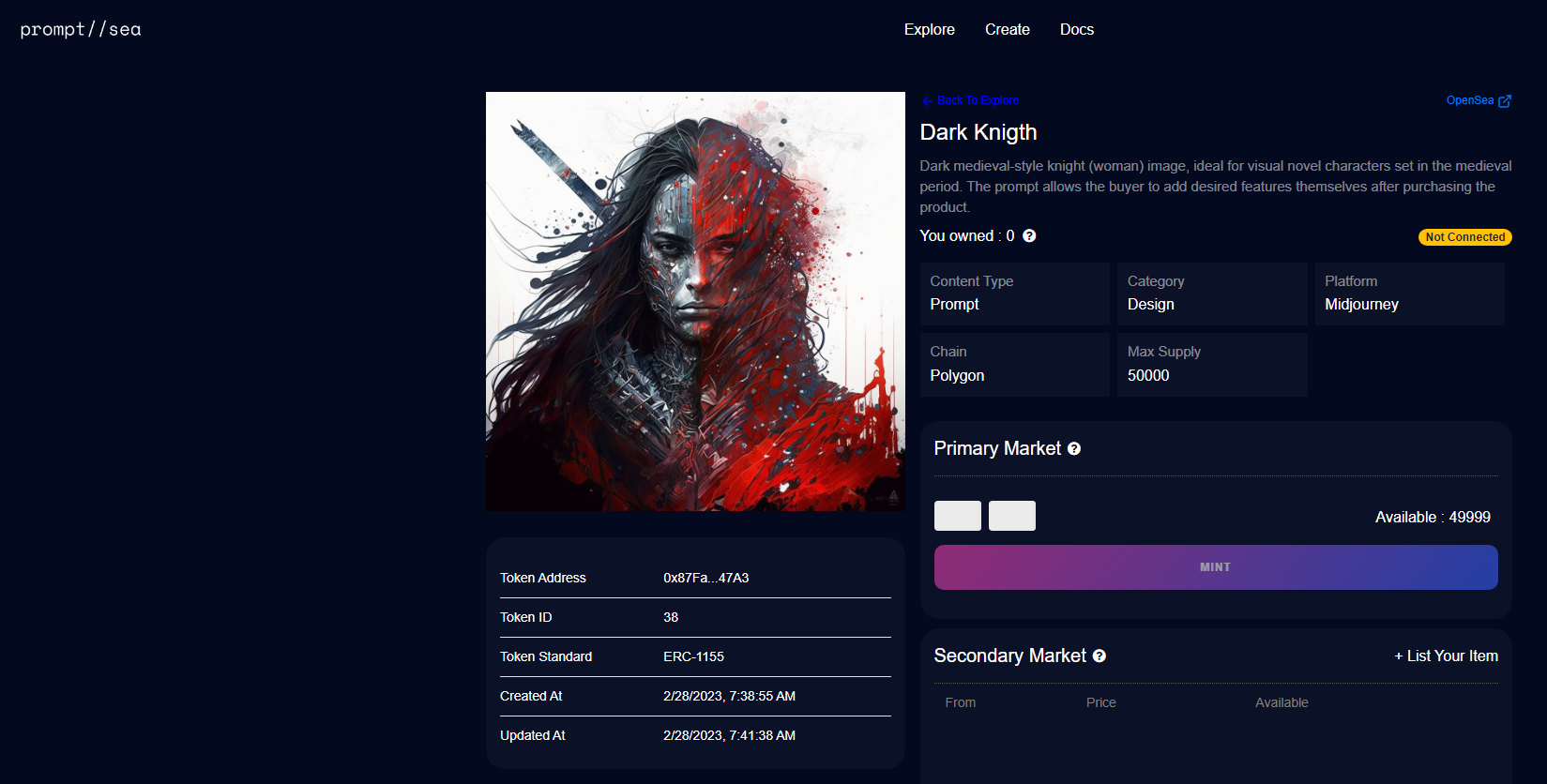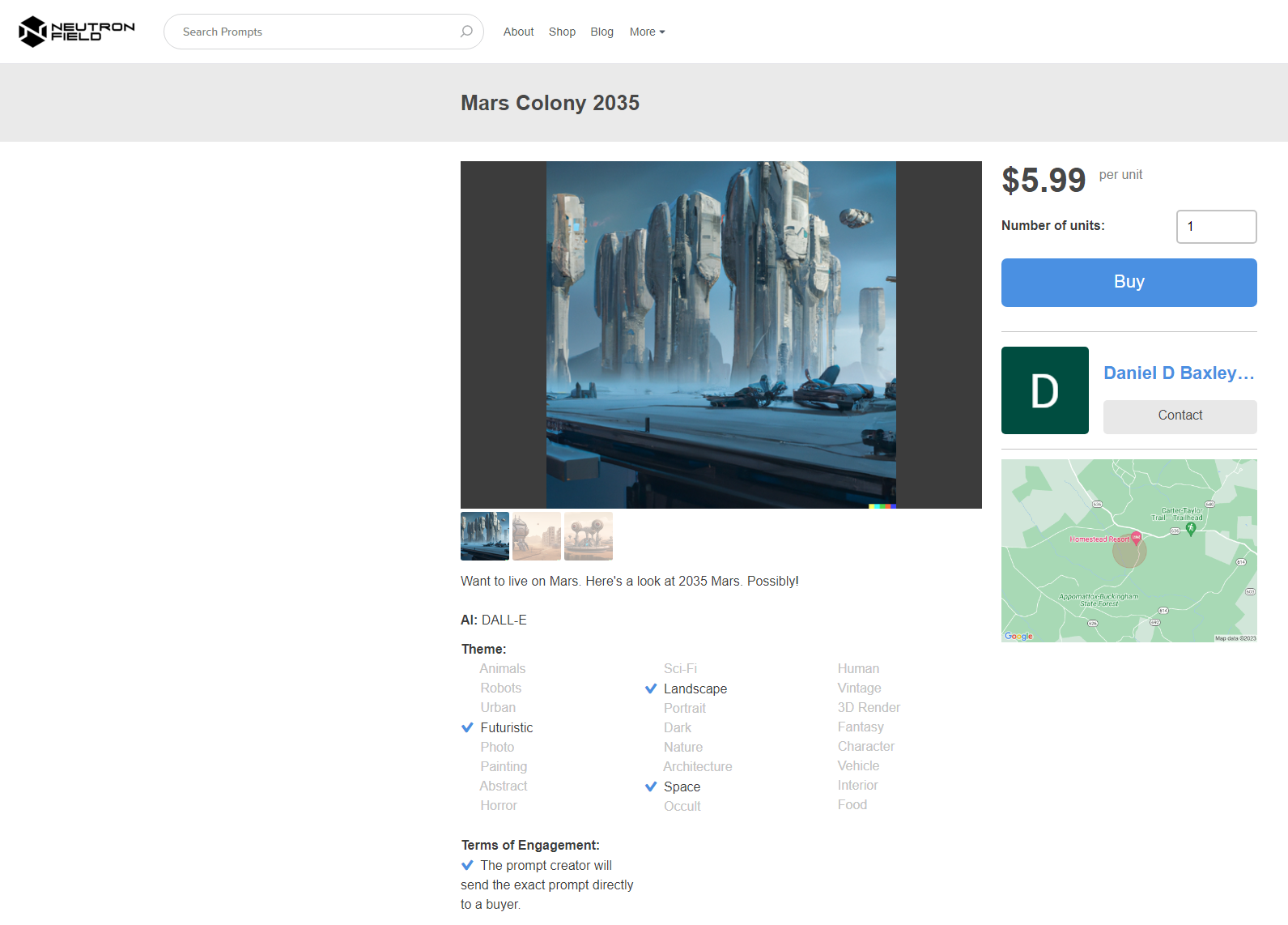Move over, software. Prompts may well be the new oil.
Writing the text strings that instruct AI systems like ChatGPT and DALL-E 2 to generate essays, articles, images and more has become a veritable profession, commanding salaries well into the six-figure range. Anyone can come up with prompts, of course. But only certain prompts (e.g. “Create a watercolor of a solider standing in the middle of a field, in the style of John Singer Sargent) accomplish very specific, desirable (or undesirable) things.
Prompt writing requires skill and dedication, owing to the black box and unpredictable nature of today’s bleeding-edge AI systems. (See: Bing Chat’s off-the-rails ranting.) Complicating matters further, the systems are frequently changing and responding to malicious prompts, bypassing the guardrails that their makers put in place.
But not every company or developer has the budget to hire a so-called prompt engineer. Fortunately, there’s the gig economy.
Prompt marketplaces, or e-commerce portals where users can buy, sell or give away prompts “designed” for various AI systems, are a growing industry. When we first profiled prompt marketplaces last July, there was only one major player. But since then, the landscape has expanded dramatically. Even a cursory Google search turns up a dozen or more prompt marketplaces, with new ones added on a monthly basis.
ChatX, for instance, offers prompts tuned to ChatGPT as well as popular image-generating systems like DALL-E 2, Midjourney and Stable Diffusion. NeutronField’s prompts for sale cover a slightly wider range of AI systems, including Disco Diffusion and Craiyon.
Many of the marketplace operators, like NeutronField’s Miroslav Kostic, have no background in AI or even data science. They were hobbyists to start, experimenting with systems like Stable Diffusion but running into hurdles unlocking their full potential.

“I’ve been playing with AI text-to-image models since Disco Diffusion first appeared in September 2021,” Kostic told TechCrunch in an email interview. “I spent countless hours trying to bring to life the ideas that had been in my head for years — dystopian sci-fi landscapes and otherworldly spacescapes. However, I quickly realized that creating coherent images using just words was a challenge.”
Kostic largely runs NeutronField solo, personally reviewing every prompt submitted by sellers to ensure they’re in keeping with the marketplace’s content policy. (NeutronField doesn’t permit prompts that can be used to generate celebrity deepfakes, depictions of graphic violence or clones of copyrighted characters.)
“There was a growing interest in the industry and a need for a more efficient and accessible way to connect prompt engineers and generative AI users,” Salehi said via email. “As AI systems improve, they can automate more processes or tasks that once required human power, make sense of data on a scale that no human could, and offer streamlined, automated ways for workers to complete manual, mundane tasks. This means that the demand for prompts that can leverage these capabilities may increase as well.”
Some marketplace founders pivoted from entirely different industries, no doubt seeking to cash in on the generative AI craze. Pisuth Daengthongdee, who started PromptSea, originally hoped to create an NFT marketplace but was deterred by the formidable competition.
“The large user base of AI-image generators such as Midjourney, DALL-E and later ChatGPT in December, with over a million users, was a major factor in our shift,” Daengthongdee told TechCrunch.

What’s striking about the prompt marketplaces out there is that few, if any, follow the same playbook. It’s uncharted territory, prompt selling and buying, and each platform is approaching it from starkly different directions.
For example, PromptSea “tokenizes” prompts on a blockchain, creating an immutable record of each prompt’s creation, trade and sale. There’s a downside in that prompts on PromptSea have to be “minted” before they can be sold, a process that isn’t instant — or free. But the benefit is that PromptSea-originated prompts have traceable, public trail, Daengthongdee says, which makes it easier to determine their rightful owner — and for that owner to get a cut of resales.
“What we can do is monitor new prompts and take down any suspicious ones from the website. This is similar to what other NFT marketplaces do,” Daengthongdee said. Like ChatX, PromptSea, which also sells AI-generated stories and artwork, moderates for prompts that run afoul of its quality and content guidelines. “In the long run, we will allow moderators from the network to review new prompts and receive incentives for their efforts,” Daengthongdee added.
NeutronField is differentiated by its focus on “high-quality” text-to-image prompts plus a shop for physical goods like clothing, backpacks and laptop sleeves, Kostic says. As for ChatX, it follows a more conventional model, selling curated collections of prompts, Salehi explained.
ChatX pays prompt creators $39 (in Canadian dollars) for each prompt that successfully makes it through the platform’s moderation queue. Prompts on ChatX are free for the time being; ChatX only charges buyers for custom-made prompts, which cost $39 (again, Canadian dollars).
Salehi says he plans to implement a commission-based structure in the future. NeutronField is already charging commission. So is PromptSea, which collects a 10% fee on each transaction.
“I believe the prompt marketplace is considered to be a part of the AI-assisted content creation that will disrupt the global creative market,” Daengthongdee said. “AI will eventually be used as a software tool for creators, just like Photoshop or Blender, and will help individuals or studios produce creative works at a lower cost.”
Those are bold predictions, but it’s still early days for prompt marketplaces. They’re basic compared to the eBays, Alibabas and Amazons of the world in terms of functionality, lacking rating and review tools and ways to customize and personalize the prompts for sale. They’re also small operations with relatively few prompts to choose from; perhaps tellingly, none of the founders I spoke with volunteered revenue or usage statistics.

Growth might come as generative AI continues to attract eyeballs. I wonder, though, how well these early ventures will weather the many challenges that lie ahead for them.
Consider moderation. It’s relatively easy when dealing with a small marketplace. But with scale, it becomes harder — especially once bad actors enter the mix. It’s not difficult to imagine, for instance, a small army of sellers trying to flood a platform like ChatX with prompts for nude deepfakes. Those prompts might never make it to the marketplace, but they’d bog down the moderation queue to such a degree that it could impact legitimate prompt creators.
Partially motivated by this concern, Chatx is manually approving sellers at the moment and says it’s developing a system to let users report “problematic” prompts that might slip through moderation. PromptSea and NeutronField have no such restriction in place — so far.
Then, there’s the copyright question. Can prompt creators copyright their work and, if so, could it lead to situations where sellers infringe on the rights of the creators/owners by copying and then selling their work? Besides manual moderation, ChatX and NeutronField have no plan in place to prevent this. PromptSea believes its blockchain-based approach will solve the provenance issue, but it’s an untested theory.
If there’s one thing that’s certain, it’s that prompt marketplaces aren’t going away anytime soon. They’ll evolve and change with the AI systems they’re designed to prompt, growing in fits and starts — and surely encountering roadblocks along the way.
Kostic in particular didn’t seem deterred, though.
“As AI platforms improve and new ones emerge, prompt marketplaces must stay up-to-date and adapt accordingly,” Kostic said. “Prompt marketplaces must be committed to staying on top of the latest AI developments and ensuring users can access the best prompts.”































Comment